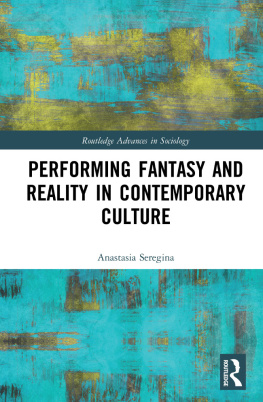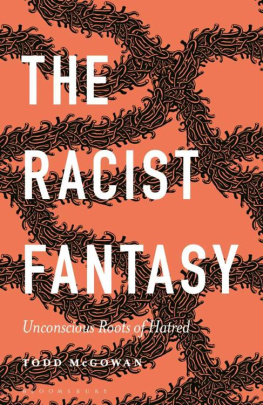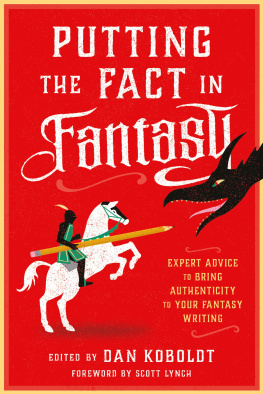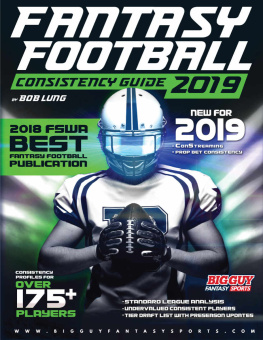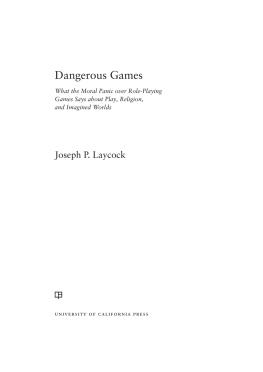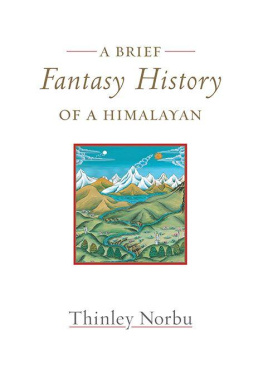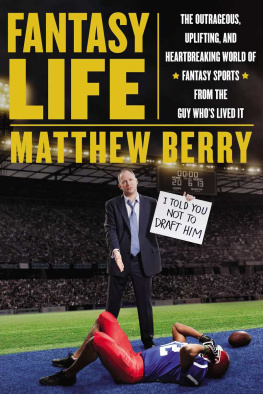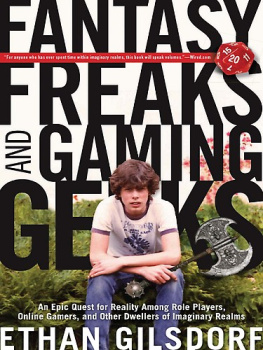
Performing Fantasy and Reality in Contemporary Culture
We frequently engage with that which we consciously perceive not to be real, yet fantasy, despite its pervasive presence and strong role in everyday life through its connection to identities, communities, desires, and meanings, has yet to be properly defined and researched. This book examines fantasy from a performance theory perspective. Drawing on multidisciplinary literature, it presents ethnographic and art-based research on live action role-playing games to explore fantasy as a bodily and negotiated phenomenon that involves various kinds of engagement with ones surroundings. Overall, this book is a study of various forms and roles that fantasy can take on as part of contemporary Western culture. The study suggests that fantasy emerges as a different type of interpretation of normalised performance and reality, and can thus provide individuals with the tools to wield agency in everyday life. The book will appeal to scholars of sociology, cultural and media studies, literature and performance studies.
Anastasia Seregina is a lecturer in consumer research at Goldsmiths, University of London. Her work is based in consumer culture research, but is interdisciplinary, encompassing such fields as consumer research, sociology, anthropology, performance studies, literature studies, art education, and media studies. Anastasia is also a practising visual artist, with the focus of her artistic work often overlapping with her academic endeavours. As part of her practice, Anastasia is also developing various performance-based and art-based research methodologies. In both her artistic and academic work, she explores the role and meaning of consumption in contemporary culture, specifically focusing on topics of fantasy, imagination, and aesthetics.
Routledge Advances in Sociology
For a full list of titles in this series, please visit www.routledge.com/series/SE0511
The Live Art of Sociology
Cath Lambert
Video Games as Culture
Considering the Role and Importance of Video Games in Contemporary Society
Daniel Muriel and Garry Crawford
The Sociology of Central Asian Youth
Choice, Constraint, Risk
Mohd. Aslam Bhat
Indigenous Knowledge Production
Navigating Humanity within a Western World
Marcus Woolombi Waters
Time and Temporality in Transitional and Post-Conflict Societies
Edited by Natascha Mueller-Hirth, Sandra Rios Oyola
Practicing Art/Science
Experiments in an Emerging Field
Edited by Philippe Sormani, Guelfo Carbone & Priska Gisler
The Dark Side of Podemos?
Carl Schmitts Shadow in Progressive Populism
Josh Booth and Patrick Baert
Intergenerational Family Relations
An Evolutionary Social Science Approach
Antti O. Tanskanen and Mirkka Danielsbacka
Performing Fantasy and
Reality in Contemporary
Culture
Anastasia Seregina

First published 2019
by Routledge
2 Park Square, Milton Park, Abingdon, Oxon OX14 4RN
and by Routledge
711 Third Avenue, New York, NY 10017
Routledge is an imprint of the Taylor & Francis Group, an informa business
2019 Anastasia Seregina
The right of Anastasia Seregina to be identified as author of this work has been asserted by her in accordance with sections 77 and 78 of the Copyright, Designs and Patents Act 1988.
All rights reserved. No part of this book may be reprinted or reproduced or utilised in any form or by any electronic, mechanical, or other means, now known or hereafter invented, including photocopying and recording, or in any information storage or retrieval system, without permission in writing from the publishers.
Trademark notice : Product or corporate names may be trademarks or registered trademarks, and are used only for identification and explanation without intent to infringe.
British Library Cataloguing-in-Publication Data
A catalogue record for this book is available from the British Library
Library of Congress Cataloging-in-Publication Data
A catalog record has been requested for this book
ISBN: 978-1-138-08894-8 (hbk)
ISBN: 978-1-315-10954-1 (ebk)
Typeset in Times New Roman
by Swales & Willis Ltd, Exeter, Devon, UK
Figures
Table
No book is ever written alone. This book started off as a personal endeavour or quest, but was shaped by countless interactions, discussions, readings, lectures, random remarks, daydreams during boring meetings, as well as shared scribbles and doodles in my oddly structured notes. It is impossible to name all the people who have helped me, shaped me, and thus allowed me to write this book. Yet, I am extremely grateful to all of you in the academic community, in the art community, and, of course, in the LARP community, with whom I have had the pleasure to interact throughout the years.
An especial thank you goes to those who have always been there for me during this research project, even as it took over my life for about the past six years. They were there both in the moments of ecstatic joy of discovery and creation, as well as in the periods of desperation and despair. My deepest gratitude goes to Siiri Pyhnen, Taake, Eevi Huhtamaa, Kira Strandby, and my amazing partner, Aleksi Aalto.
Moreover, there are those, without whom this book would not have been possible in practical terms. Thank you to my dissertation adviser, John W. Schouten, for guiding my work, and my doctoral dissertation opponent, Matthias Bode, for grilling me about my work. A huge thank you also to my editor, Neil Jordan, for believing in my research and its potential. Lastly, this book would not have been possible without the financial support of the Foundation for Economic Education (Liikesivistysrahasto), the Helsinki School of Economics Foundation (Helsingin kauppakorkeakoulun tukisti), and the Department of Marketing at Aalto University.
The best part of any creative work is its process. That is, unfortunately, over for this particular endeavour. I hope to inspire you, the reader, to engage in exploration, too! I will surely be engaging in new quests as you read this!
What is it like to experience something that you describe and define as being not real? How is this different from experiencing something real? Why do we engage in such behaviour? And what do we get out of it? Such questions were the basis of and the driving force for this book.
Fantasy, simply described as experiencing something that is consciously perceived and subjectively defined as not real, is a natural and essential part of human life. Saler (2012) suggests that fantasy has always been a part of the human world, and Schechner (1993) proposes that it is perhaps what makes us human. Schechner further explains that fantasy is a unique human quality that allows us to dream and imagine, and also reflect and elaborate on these processes by placing our wants, goals, and desires into their realms. Fantasy is thus an important part of social processes, with people devoting a lot of time and energy to it, as Goffman (1974) and Cohen and Taylor (1976) note. In other words, as Saler (2012) explains, fantasy has become an important tangible, communally shared presence in contemporary life; an inherent element of todays consumption-driven culture that connects to meaning-making and desires (Pealoza 2001; Kozinets et al. 2004; Martin 2004).
Fantasy has been explored as part of different phenomena in various research fields, such as psychology, aesthetics, as well as literature, media, and gaming studies. While building our understanding of human life and culture, these studies have mainly explored fantasy theoretically and/or as a cognitive and individual behaviour, often associating it with entertainment, leisure, and even Utopia. Chronis, Arnould, and Hampton (2012) write that research has focused too much on fantasy as pleasurable mental imagery, and suggest that we need to move beyond this limited understanding. Similarly, Hoogland (2002) stresses that we can no longer disregard the flesh (p. 214) of fantasy, elaborating that, while the inner world of individuals is an important part of fantasy, the bodily experience of fantasy, which has received little attention, is just as significant. Fine (1983) and Borer (2010) explain that empirical exploration of fantasy is still largely missing, because such an approach is challenging due to fantasys ephemeral and subjective nature. Yet Fine stresses that a better understanding of fantasy could provide us with deeper comprehension of both fantasy and reality. Overall, as fantasy appeals not just to our mind and emotions, but to all of our senses, we need to look at how the phenomenon takes place interactively and materially.
Next page
